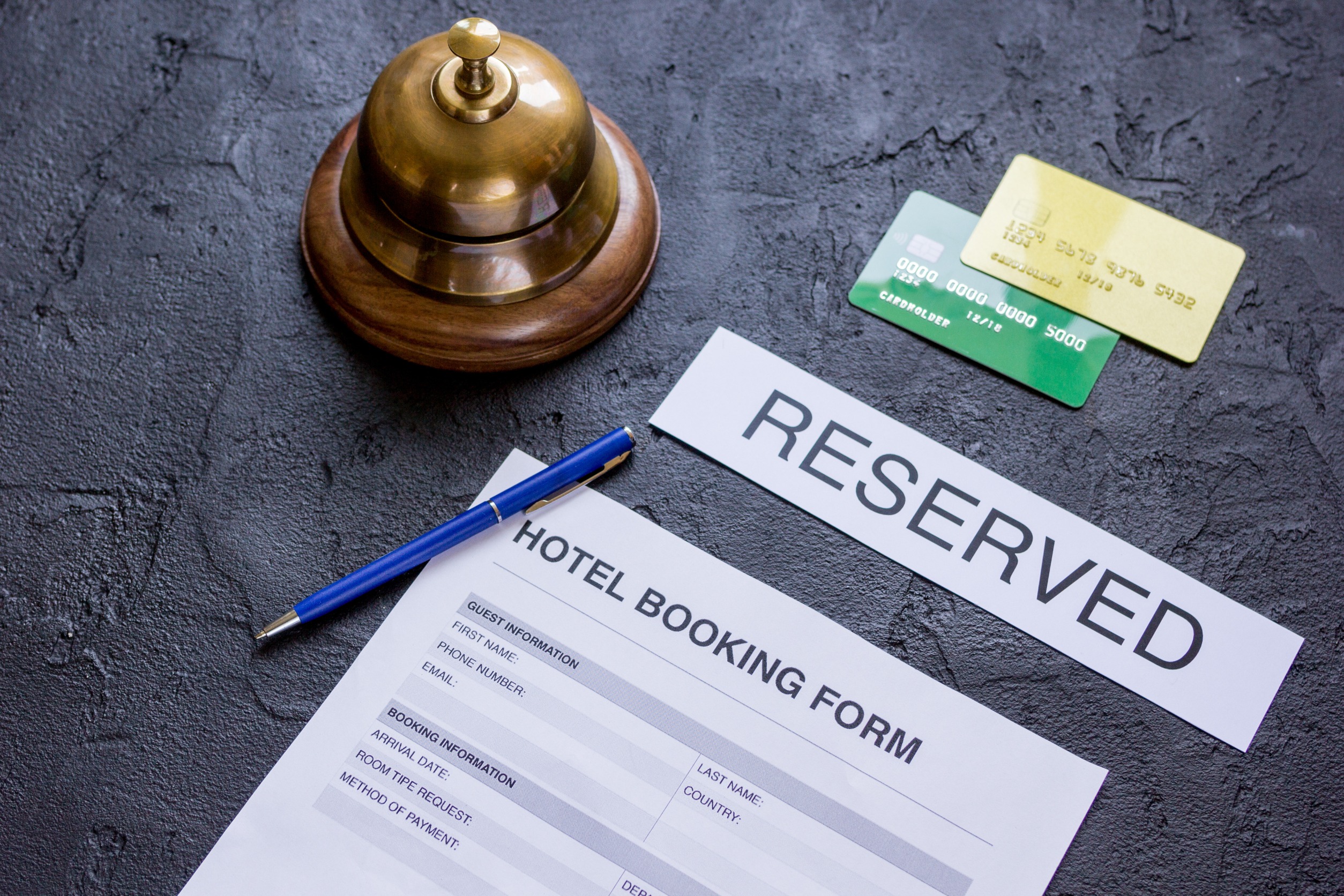
How to Minimize Hotel Booking Cancellations & Chargebacks
In today's fast-paced and unpredictable world, hotel booking cancellations have become a common occurrence. Whether it's due to sudden changes in travel plans, unforeseen circumstances, or simply a change of mind, hotel cancellations can have a significant impact on both travelers and hoteliers. However, there are strategies that can be employed to minimize these cancellations and optimize the booking process for all parties involved. This article aims to provide valuable insights and tips on how to minimize hotel booking cancellations.
1. Introduction
Hotel booking cancellations can lead to revenue loss, operational inefficiencies, and customer dissatisfaction. By implementing effective strategies, hoteliers can minimize these cancellations and improve their overall business performance.
2. Understanding the Reasons behind Hotel Booking Cancellations
To address the issue of hotel booking cancellations, or even chargebacks it is essential to understand the underlying reasons. Some common factors include changes in travel plans, financial constraints, dissatisfaction with the booking process, and unexpected events. By identifying these reasons, hotels can tailor their strategies to minimize cancellations.
3. Optimizing the Booking Process
A smooth and user-friendly booking process can significantly reduce cancellations. Hotels should invest in intuitive and responsive online booking systems that provide clear information, attractive visuals, and easy navigation. Streamlining the booking process ensures a positive user experience and encourages travelers to commit to their reservations. It remains to be said that an unoptimized booking process leads to trust deficits and you as a business has to pay the price for it later. A good design is the forerunner of great booking process. You can create a great design with the help of cloud brush sets for procreate.
4. Providing Flexible Cancellation Policies
Offering flexible cancellation policies is a powerful tool for minimizing cancellations. Truth be told an easy cancellation policy is the cornerstone of avoiding chargebacks. By allowing guests to modify or cancel their reservations within a reasonable timeframe without incurring significant penalties, hotels can enhance customer satisfaction and loyalty. Transparent cancellation policies build trust and confidence among potential guests.
5. Enhancing Customer Service and Communication
Effective communication is key to reducing cancellations. Hotels should establish a robust customer service system that promptly addresses guest queries and concerns. Clear and timely communication can help resolve potential issues before they escalate and lead to cancellations. Personalized interactions and proactive communication can also create a sense of trust and reliability.
6. Leveraging Technology Solutions
Technology plays a vital role in minimizing hotel booking cancellations. Hotels can utilize data analytics tools to identify patterns and trends in cancellation behavior. This information can help them optimize their pricing, marketing strategies, and operational decisions to reduce cancellations. Additionally, implementing automated reminder systems and mobile apps can serve as effective tools for reducing cancellations.
7. Offering Personalized Incentives
Hotels can incentivize guests to keep their reservations by offering personalized benefits and rewards. This can include complimentary upgrades, exclusive discounts, or special amenities. Tailoring incentives based on guest preferences and past behaviors can increase the likelihood of guests honoring their bookings.
8. Managing Overbookings Effectively
Overbooking is a common practice in the hotel industry, but it can also lead to cancellations. Hotels should adopt efficient overbooking management techniques to minimize cancellations caused by overcapacity. By closely monitoring occupancy rates, implementing accurate forecasting models, and having a backup plan in place, hotels can better manage their inventory and reduce cancellations.
Overbooking is a common practice in the hotel industry to maximize occupancy rates and revenue. However, if not managed properly, overbooking can lead to guest dissatisfaction and cancellations. Therefore, it is crucial for hotels to implement effective measures to minimize the negative impact of overbookings and maintain a positive guest experience.
Accurate Forecasting: The first step in managing overbookings effectively is to have a solid understanding of historical data, booking trends, and market demand. Hotels should utilize robust forecasting models that take into account various factors such as seasonal variations, events, and historical booking patterns. By accurately predicting occupancy rates, hotels can better assess the number of rooms available for overbooking without compromising guest satisfaction.
Set Clear Policies: Hotels must establish transparent policies and procedures regarding overbookings. This includes defining the maximum number of overbookings allowed, outlining the criteria for selecting which reservations to honor in case of overcapacity, and clearly communicating these policies to both staff and guests. Clear policies help manage expectations and minimize guest frustration when faced with an overbooking situation.
Effective Communication: Prompt and effective communication is essential when managing overbookings. Hotels should have well-defined protocols in place to inform guests about overbookings as soon as they occur. In such situations, hotels should proactively contact affected guests, apologize for the inconvenience, and offer appropriate solutions. This may involve arranging alternative accommodations at a nearby hotel, providing compensation or upgrades, or offering future discounts.
Priority and Compensation: When selecting which reservations to honor in case of overcapacity, hotels should consider factors such as loyalty program status, booking method (direct booking vs. third-party booking), and the timing of the reservation. Guests who have booked directly with the hotel or are part of loyalty programs should be given priority. In cases where guests are relocated to another property, hotels should cover any additional costs and provide compensation for the inconvenience caused.
Effective Inventory Management: To minimize the impact of overbookings, hotels should closely monitor their inventory and make necessary adjustments in real-time. This involves actively managing room allocations, cancellations, and last-minute changes. By having a well-coordinated system in place, hotels can optimize room availability, avoid overbookings, and maintain a high level of guest satisfaction.
Partner Collaboration: In situations where overbookings cannot be avoided, hotels can collaborate with partner properties to accommodate guests. Maintaining good relationships with neighboring hotels enables the smooth transition of guests and ensures a seamless experience. Establishing clear protocols and communication channels with partner properties is crucial to managing overbookings effectively.
Continuous Evaluation and Improvement: Overbooking management should be an ongoing process, constantly evaluated and refined. Hotels should regularly review their overbooking practices, analyze guest feedback, and assess the effectiveness of their strategies. By learning from past experiences and making necessary adjustments, hotels can continuously improve their overbooking management procedures and minimize the occurrence of cancellations and guest dissatisfaction.
9. Monitoring and Analyzing Booking Trends
Continuous monitoring and analysis of booking trends can provide valuable insights into cancellation patterns. By identifying recurring trends, hotels can proactively address potential issues and adapt their strategies accordingly. This data-driven approach enables hotels to make informed decisions to minimize cancellations and maximize revenue.
10. Conclusion
Minimizing hotel booking cancellations is a complex but crucial task for hoteliers. By understanding the reasons behind cancellations, optimizing the booking process, providing flexible policies, enhancing customer service, leveraging technology, offering personalized incentives, managing overbookings, and monitoring booking trends, hotels can effectively reduce cancellations and create a positive guest experience.
11. FAQs
Q1. Can hotels completely eliminate booking cancellations?
While it may not be possible to completely eliminate cancellations, implementing the strategies mentioned in this article can significantly reduce their occurrence.
Q2. How can personalized incentives help minimize cancellations?
Personalized incentives cater to guests' individual preferences and create a sense of value and exclusivity, increasing the likelihood of them honoring their reservations.
Q3. What role does technology play in minimizing cancellations?
Technology provides hotels with valuable data insights, automated communication tools, and efficient overbooking management systems, all of which contribute to reducing cancellations.
Q4. Are there any risks associated with overbooking management?
While overbooking management can help maximize occupancy rates, it requires careful monitoring and planning to avoid inconveniencing guests with cancellations.
Q5. How can hotels benefit from monitoring booking trends?
Monitoring booking trends allows hotels to identify patterns, anticipate cancellations, and adjust their strategies to minimize cancellations and optimize revenue.














